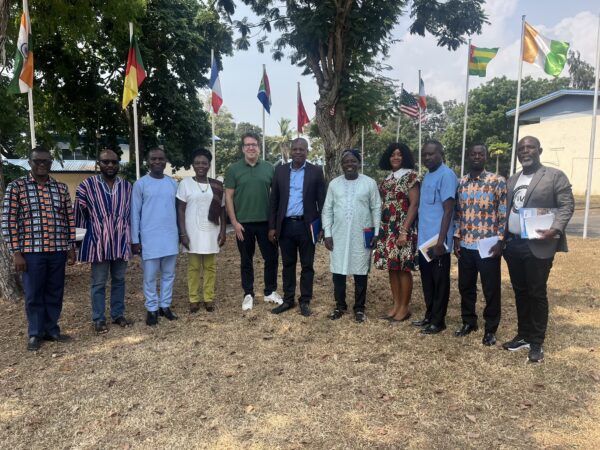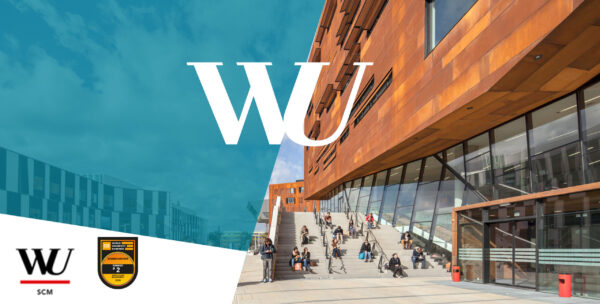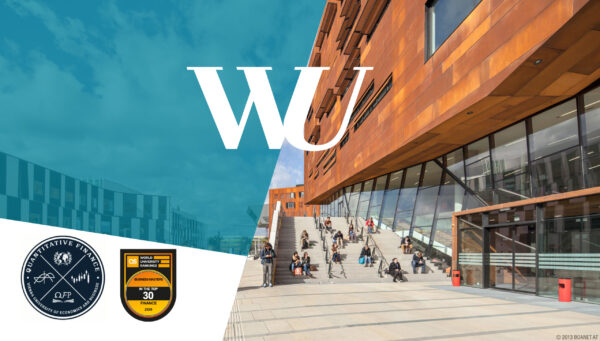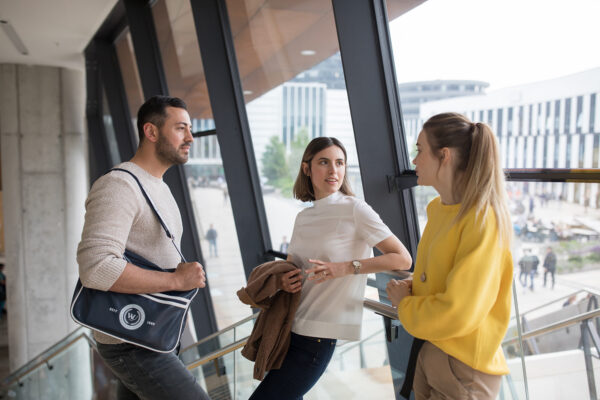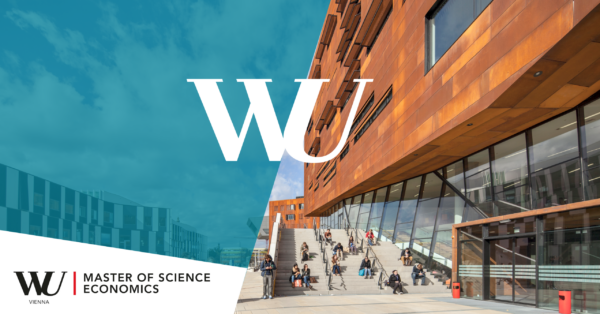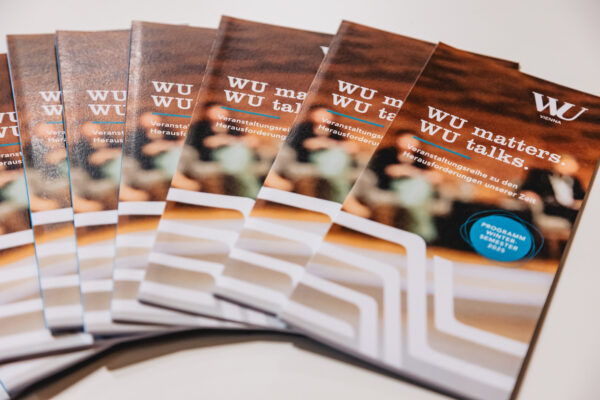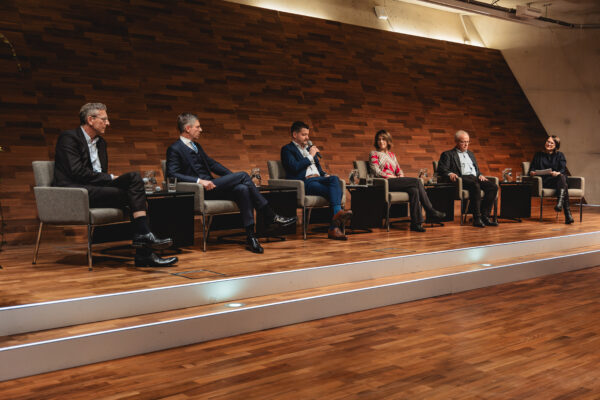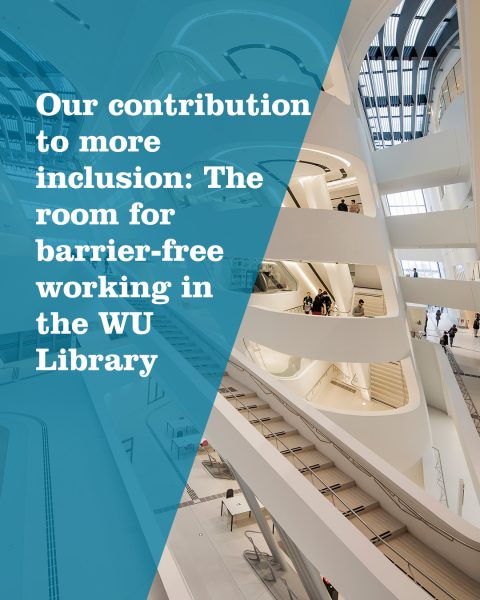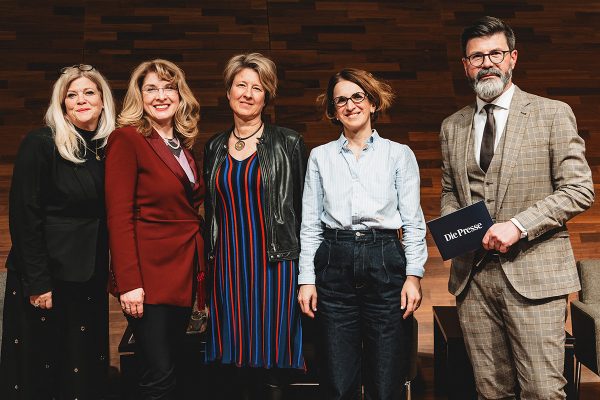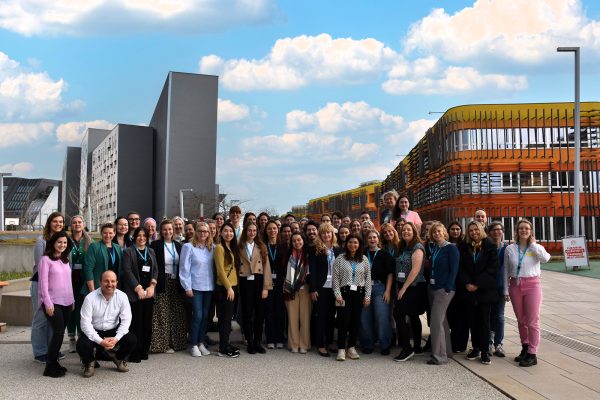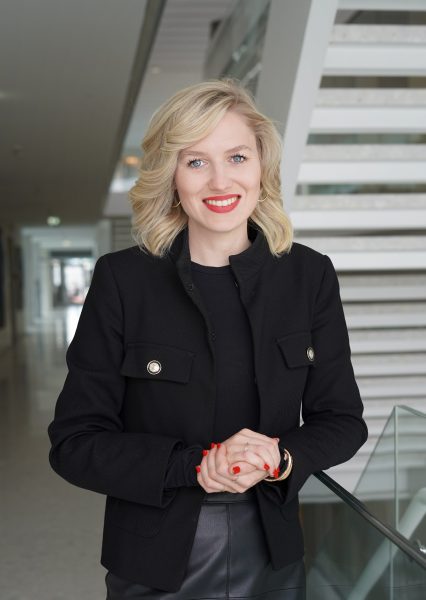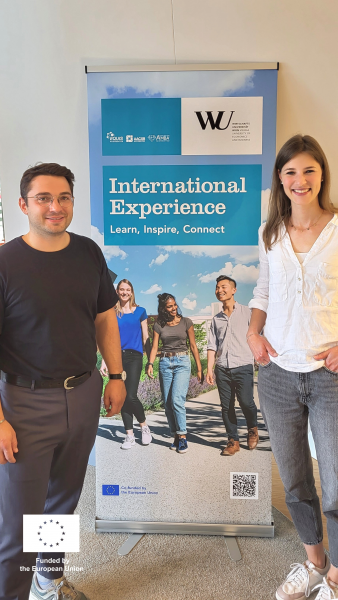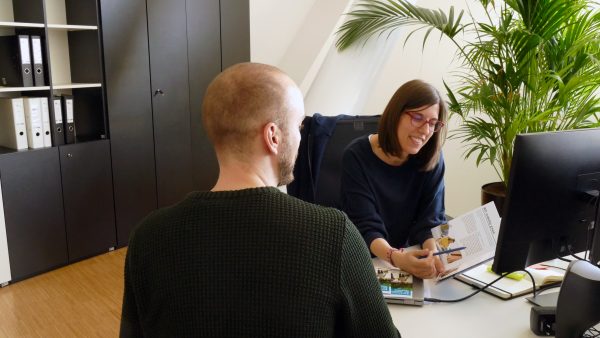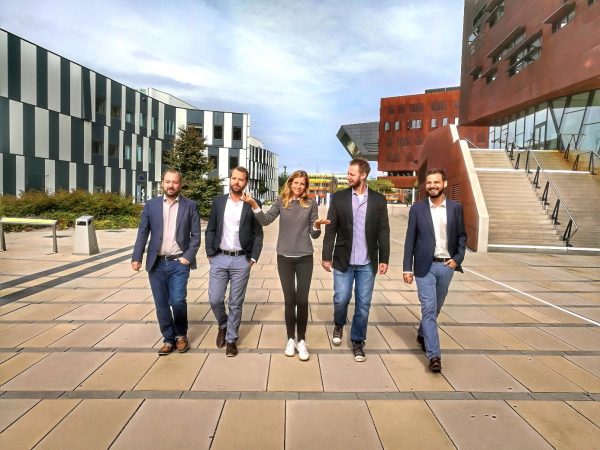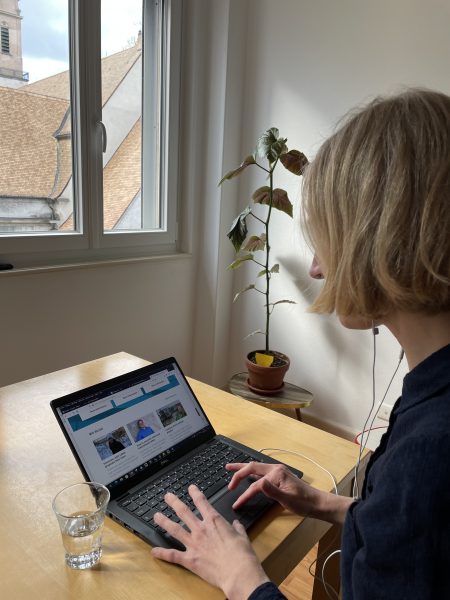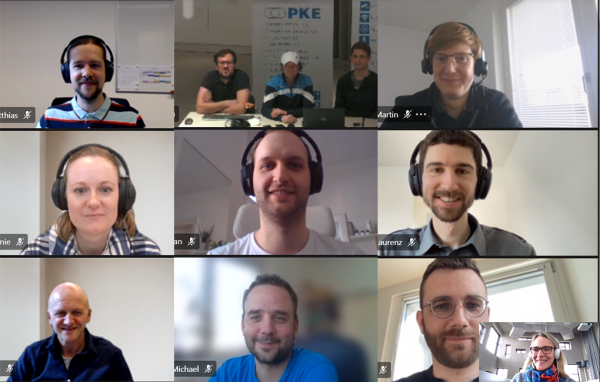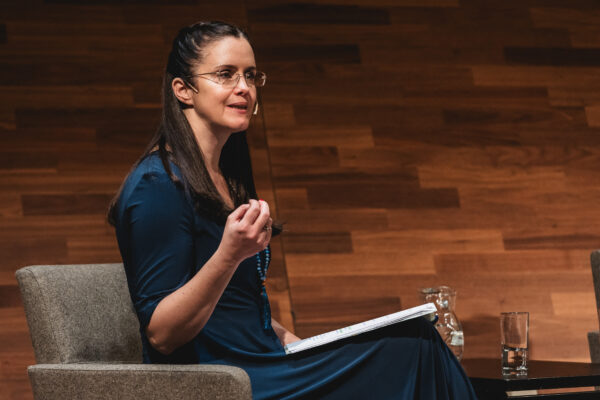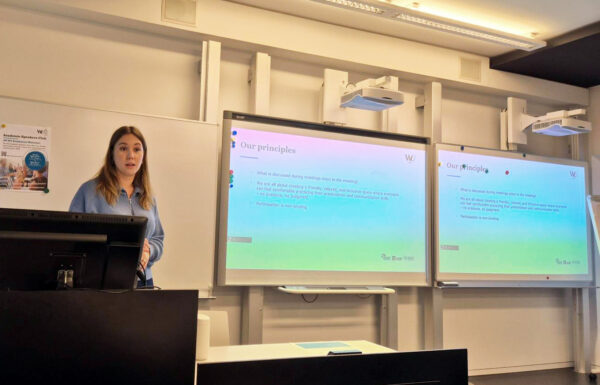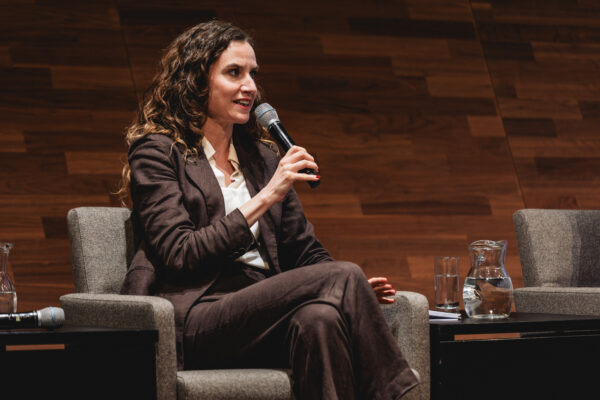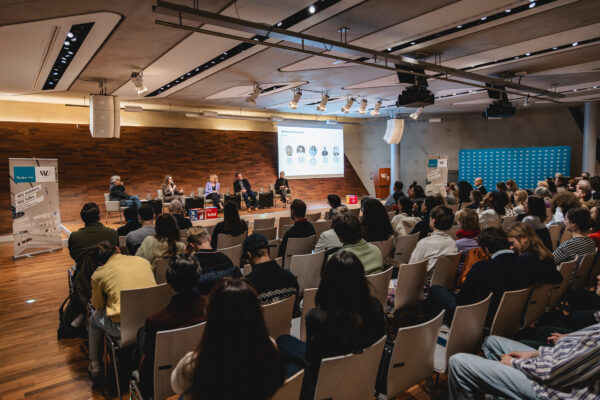“If there are opportunities in foreign countries, don’t limit yourself to your home country.”
Nowadays, it is possible for students to design their own study time in a global and international manner. In addition to being a valuable addition to one’s resume, internationality also enriches the own perspective and is an appreciated qualification in the professional world. In an interview with WU’s Blog, CEMS graduate Hsin Chen tells us about her studies and her future career plans. Among other things, she reveals what makes up a “global mindset” and which tips are valuable for international students when starting a career.
WU Blog: Hsin, you have been on exchange semester here at WU Vienna. How did you learn about WU? What was your motivation to pursue this exchange?
Hsin Chen: I grew up in Taiwan and went to Hong Kong to study for my Bachelor’s degree. I decided early in my studies that I wanted to go on a full-year exchange. There were mainly two reasons – I like new adventures, and I needed a break from the stressful life in Hong Kong. When I was choosing where to go on exchange, my main criteria were a country that I have never been to, a culture I do not know much of, where English is not the national language, and the courses offered by the university. WU was one of the few partner universities that offered a full-year exchange and many courses were transferable.
WU Blog: After your bachelor’s degree, you decided to come back to Vienna and to start a master’s degree in International Management/CEMS. Which circumstances and personal experiences convinced you to follow this plan?
Hsin Chen: There were four main reasons. From my experiences, being a tourist is very different from living in a country. Since I was travelling a third of the time during my exchange, I felt like I haven’t got to know Austria on a deeper level. Second, it takes quite an effort to move to a new country. Because I continued to study in Vienna, I could spare a lot of effort figuring out administrative issues and focus more on matters that I prefered working on. Third, the CEMS program provides the opportunity to go on exchange and attend conferences at partner universities, so it was convenient to use Vienna as a base and travel to other European countries. The last reason was simply subjective: I preferred the Austrian German accent and wanted to strengthen my German skills in Austria.
Even though I am still on my learning journey, having this mindset helps me to refocus, tackle a topic from as many angles as possible, be a broad-minded person, and have empathy.
WU Blog: As WU student as well as incoming and outgoing exchange student, you definitely have a global mindset. How can this be beneficial for your career or a career in general?
Hsin Chen: In my opinion, simply visiting many countries does not necessarily help a person cultivate an international perspective. Rather, it has to be done intentionally. The news and social media are dominated by trendy topics, mostly from the perspective of large countries, well-known companies, and famous people. However, true internationality should be an understanding of major as well as minor topics and attention given to both the privileged and the underprivileged.
Even though I am still on my learning journey, having this mindset helps me to refocus, tackle a topic from as many angles as possible, be a broad-minded person, and have empathy.
WU Blog: Looking for an internship or a job, which challenges do you face as international student? Do you have tips and thoughts that you can share with fellow WU students?
Hsin Chen: As a student from a so-called third country, the Austrian law is unfortunately pretty unfriendly and access to the job market is limited. It would be easier for experienced professionals, though. My suggestion for students from third countries: Try to find a job with up to 20 hours per week. For these jobs, students from third countries do not need a labor market assessment. This is administratively easier than a full-time internship and there is often a chance to make it a full-time job after graduation.
For international students in general, my suggestions would be: take the opportunity to learn some German and don’t be afraid of speaking it. German language skills might not be a deciding factor, but it is beneficial to start a career in Austria. If there are opportunities in foreign countries, don’t limit yourself to your home country. It can be challenging to land a job and adapt to a new environment; yet, if you succeed, the experiences are worth the effort, even if you cannot see the benefits immediately.
WU Blog: Do you feel well supported through the services offered at WU Vienna? Is there something that you would change or add to the existing offerings?
Hsin Chen: WU’s International Office and the office of my program were supportive, and there was always a contact person that knew what to do. After talking with fellow students, we concluded that we really wished for more practical support in finding an internship or a job. Perhaps there could be agreements with a few companies – at least that way, students are given the chance to fulfill the internship requirement and experience a foreign work environment. If more support is given to students from third countries in finding a job, it is likely that WU could become an even more popular choice among these students.
WU Blog: Having recently graduated from International Management/CEMS, what are your plans for the future?
Hsin Chen: I am currently looking for a job – hopefully in a dynamic international company with opportunities to travel and relocate. The opportunity cost of moving and exploring is relatively low for young people, so why not challenge myself?

